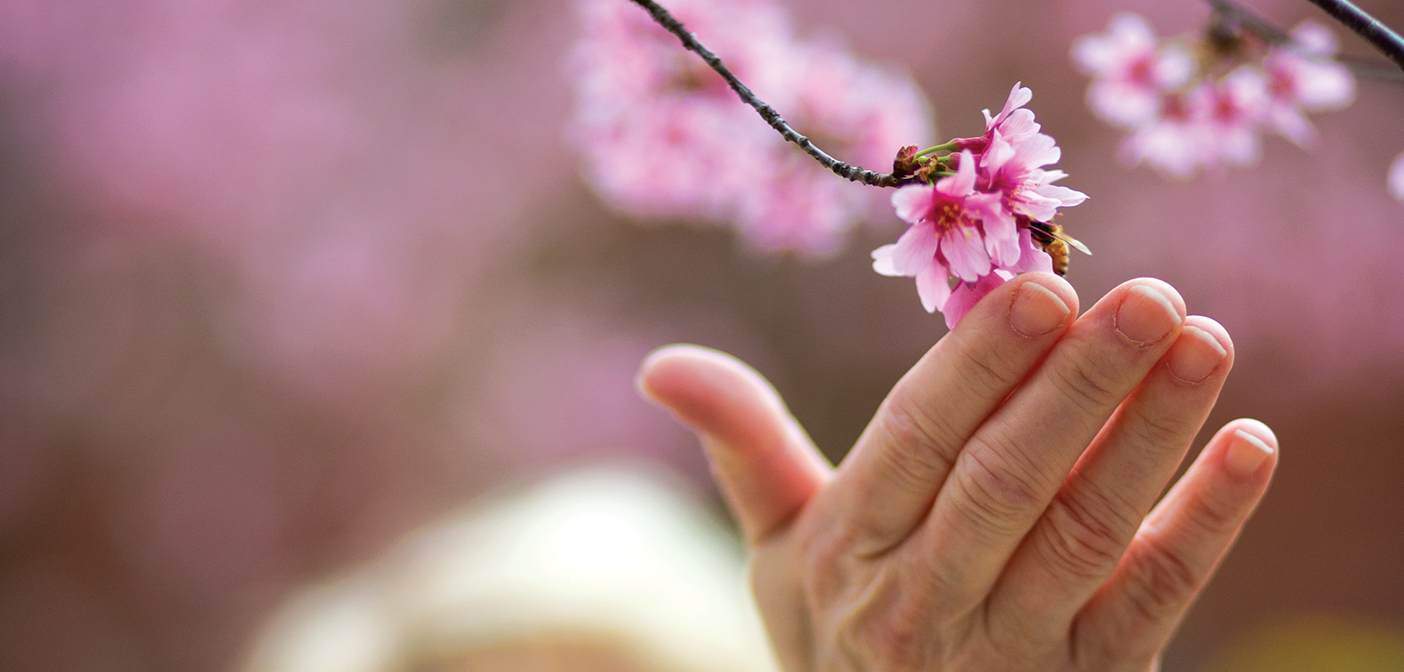Roberta Jones stumbles upon a sweet spot in caring for hives
Six years ago, Roberta Jones, MSN, RN, went to a beekeeping class with little clue about what she was getting into. Now, with eight hives and more than 600,000 bees, she says “her girls” provide not just a hobby but a passion for the relaxing yet thrilling job of raising honeybees.
“I did wonder if I was crazy,” she admits about getting her first hive. “But it was something that I started with my dad and brother, and it was important to me since bees have been in such decline across the world.”
Photos by Chris Hartlove
Jones, who lives in Baltimore, keeps her bees on her parent’s farm in Pittsburgh. She makes trips home at least two weekends a month to look in on the health of her eight hives, listen to the busy buzz, and make sure no bears have discovered the honey store. While she wouldn’t say she’s an expert yet, she has picked up some tips and tricks along the way to help keep the hives in good shape.
“Bees have a tendency to drift to the right, so if you keep their hives in a line, they may leave their own for another. I put mine in a diamond shape, and we’ve had no drifting,” she says. Jones even helps the bees keep full bellies during the winter by mixing fondant icing, bee protein, and probiotics to make fortified honey. “Sometimes if their honey is even just a half of an inch away from them, the bees can starve. I make up honey, put it in their box, and it’s easy for them to reach.”
“It’s just like health care. Beekeeping is dynamic. You’ve got to be willing to change and adapt.”
— Roberta Jones, MSN, RN
Not unlike her work as a perioperative nurse, Jones’s main job as a beekeeper is ensuring the safety and good health of her bees. In the hospital, where she also holds a CNOR credential, she examines frontline processes and tests new technologies to facilitate patient-centered and quality care, and at the
farm, she keeps close watch on the bees to help protect them from disease and infection. “It’s just like health care. Beekeeping is dynamic. You’ve got to be willing to change and adapt.” From making sure the queen is laying eggs to doing an autopsy when a hive is lost, Jones says she’s not afraid to make changes, question care options, and get stung a few times for the sake of the hive.
“They’re adorable, I just love them,” she says. It’s hard work, but for Jones, keeping her bees is a pastime that makes her smile. And it has started paying for itself, too. At local farmer’s markers and craft shows, she sells honey and homemade beeswax candles and hand creams, and some of her honeys have even won prizes at the Pennsylvania State Farm Show.
“I would recommend anyone get a hive and take a beginning beekeeping course,” she says. “There is so much to learn and it’s something everyone can do to help our bee population.”

